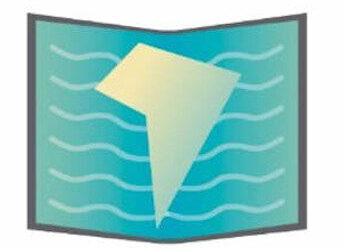Una Pequeña Canción para un Pasado Lejano (fragmento)
Hay un lugar donde me crié, un pueblo donde hace años se desmoronaron los naranjales en la expansión oriental del Gran Los Ángeles. La casa de madera de un viejo cultivador de repente quedó desnuda entre montones de árboles arrancados de raíz. Los montones solían quemarse al amanecer mientras los bomberos con abrigos de goma vigilaban, bebiendo café y pronunciando frases de vapor apoyados en los brillantes camiones rojos. Después llegaron enormes caterpillar amarillos para convertir las cenizas en recuerdos y cortar las calles: un gran surco donde habían habido muchos animalitos, ratones de campo, liebres y bandadas de codornices que saltaban de tus pies a toda prisa. Siempre te daban un vuelco el corazón cuando paseabas por esas hierbas hasta la cintura en primavera, y el niño que iba detrás de ti corría todo el camino a casa gritando: «¡Serpiente!». Las camionetas llegaban tras los caterpillar, las cuadrillas de construcción colocaban los cimientos y empezaban a clavar las casas en sus hileras. Después de que todos se fueran a casa, hubo muchas veces al anochecer en las que deambulábamos por paredes sin terminar, observábamos pisos de tablones ásperos debajo de cajas de circuitos eléctricos perforadas y buscábamos babosas. Pronto llegaron bulevares, señales, estacionamientos de supermercados en centros comerciales con carritos de acero dispersos y música enlatada que salía de altavoces en postes de luz. Cualquier noche allí, es posible que te hayas bajado de tu auto para escuchar a Ciento una Cuerdas tocar «El especial de la flor de Azahar».
En 2003 apareció en Eugene, Oregón The Silver Dazzles of the Sun, una compilación de sus poemas selectos. En 2023 la editorial El Sur es América publicó la edición definitiva de su obra poética titulada In the River of My Sleep.
En la década de 1960 Dresman se opuso a la Guerra de Vietman y fue objetor de conciencia. Fue activista de muchas causas y viajero de muchos rincones del mundo. Además de China y el Tibet, viajó extensamente por México, Centroamérica, el Cono Sur, Francia, España y Marruecos. En la Universidad de Oregón impartió el popular curso sobre los escritores beat. También animó las veladas literarias “Los marineros del garage” en Eugene, Oregón.
Paul Dresman 1943 – 2025
A Little Song for a Long Time Past (fragment)
There’s a place where I was raised, a town where the orange groves went down in the easter expansion of greater Los Angeles years ago. The wooden house of an old grower suddenly stood naked amid piles of uprooted trees. The piles were usually burned in the dawn while firemen in rubberized coats kept watch, drinking coffee and speaking sentences of steam as they leaned against the shiny red trucks. Huge yellow Cats came afterwards to turn the ashes into memories and cut the streets: one big furrow where there had been many little ones: field mice, jack rabbits and coveys of quail starting up from your feet in a rush. They always gave your heart a leap when you wandered those waist-deep grasses in spring, and the kid behind you ran all the way home screaming, “Snake!” Pickups arrived in the wake of the Cats, construction gangs layed down foundations and started nailing the houses in their rows. After they had all gone home, there were many times at dusk when we wandered through unfinished walls, studied rough plank floors below punched-out electrical circuit boxes and looked for slugs. Boulevards, signals, shopping center supermarket parking lots with scattered steel carts and canned music coming out of loudspeakers on light poles were soon to follow. On any evening there, you might have stepped out of your auto to hear A Hundred and One Strings play “The Orange Blossom Special.”
Poet Paul Dresman departed on January 5, 2025, leaving a trail of words and memories in all those who witnessed his magnificent creativity and his beautiful way of telling stories.
Born in Los Angeles in 1943 and educated at the San Francisco State University and the University of California in San Diego, where he earned a Ph.D. in English Literature, Paul Dresman was a vitalist and cosmopolitan writer. Heir to the beat tradition and the San Francisco Renaissance (Lew Welch, Philip Whalen, Gary Snyder, Ed Dorn and Kenneth Rexroth, among others), his poetry distanced itself from its influences to build a deeply American personal voice. His first chapbooks speak of his unique multicultural universe: Andrés Hernández (1974), Gyrations (1975), Speaking of Routes (1984) and The Zen of Television (1986).
In 2003, The Silver Dazzles of the Sun, a compilation of his selected poems, appeared in Eugene, Oregon. In 2023 El Sur es América published In the River of My Sleep— the definitive edition of his collected work.
Dresman also wrote essays and translated from Spanish into English. Between 1973 and 1979 he co-edited the literary journal Crawl Out Your Window in collaboration with Rex Pickett and Mel Freilicher. In the early 1980s he published Wild Mustard Press. He was invited by Chinese poet Zheng Min to the Beijing Teachers’ University between 1986 and 1987. Between 1996 and 2000 he co-edited the bilingual journal helicóptero with Chilean poet Jesús Sepúlveda.
In the 1960s Dresman opposed the Vietnam War and was a conscientious objector. He was an activist for a range of causes and traveled to many corners in the world. In addition to China and Tibet, he traveled extensively through Mexico, Central America, the Southern Cone, France, Spain and Morocco. At the University of Oregon, he taught the popular course on the Beats. He also animated the literary evenings, “Los marineros del garage,” in Eugene, Oregon.
In 2020 he won the poetry award of the San Miguel Writers’ Conference for his poem “Inferno in the American Forest.”
In his house there is a reproduction of the bone engraving of the “Boat of the Mayan Underworld.” El Sur es América would like to believe that Paul is going in that boat with the god of corn to be reborn in the voice of his poetry.
He is survived by his wife Christine Seifert, and sons Drew and Evan. His memoir American Labyrinth, which he just completed, will appear posthumously in the next few months.







